Navigating Your Child’s Hearing Loss Journey
Written by: Julie Swaim
Being able to hear well is often an underappreciated and unacknowledged gift—until we can’t hear, or we find out someone important to us can’t hear all the sounds around them. Before my son lost his hearing, due to illness, I had never truly considered how the absence of sound would affect one’s understanding of the world and possibly determine future possibilities. My “senses awareness” heightened in 1990 when meningitis deafened our 10-month-old. Up until that time, no one was talking about hearing, listening, communication, speech awareness, language acquisition, or even early intervention—but all of this would quickly become a major focus of our family’s lives.
Thankfully, before entering the 21st Century, the National Institute of Health (NIH) endorsed “hearing screening of all newborns prior to leaving the hospital” in 1993. Congress strengthened this recommendation by passing the Newborn and Infant Hearing Screening and Intervention Act of 1999, which helped with the coordination and funding for statewide programs. This was the essential framework needed to begin conversations with all parents about the importance of hearing and child and language development.
Fast forward 20 years and the United States has robust Early Hearing Detection and Intervention (EHDI) programs in all states. Although each state has different structures, all are working to ensure that babies have a hearing screen before one month of age. If a baby refers on one or both ears, parents are encouraged to ensure their baby has a diagnostic audiological evaluation/assessment by a pediatric audiologist, before 3 months of age. If a hearing loss is found, a baby and his family should be moved quickly to enter into and receive direct early intervention services. In most cases, hearing aids should be fitted within a month after identification/diagnosis. While the current goal for babies identified with hearing loss is to enter into early intervention before 6 months of age, the ideal situation is for a baby to move into early intervention as soon as possible, so within weeks of identification/diagnosis.
Looking back at this timeline, I realize that my son’s hearing loss helped educate and prepare me for helping other parents who face the uncertainty of their child’s hearing status. For the past 10 years, as a consultant with my state’s EHDI program, I have contacted parents whose children have “referred” or did not pass their newborn hearing screening prior to leaving the hospital. This experience has allowed me to have conversations with parents about hearing, and the effects of mild, moderate, unilateral hearing loss, and undiagnosed hearing loss on the language development of their child. Parents often do not understand the urgency of scheduling a diagnostic hearing evaluation and the implications of waiting until a baby is old enough to respond. Time is of the essence because, if a child does have a hearing loss, the sooner parents know, the sooner they can seek out and receive help for their child and family.
I have learned so much in my family’s journey. As a new parent, there was so little that I knew when it came to hearing. I had really never given our sense of hearing much thought. So, I did not understand that my baby startling to noise did not equate to “hearing” all the sounds needed for speech. I didn’t know that there were specific frequencies a young child needs to hear in order to learn and understand speech. To this day, I still shudder at the fact that many people with good intentions told us, “Don’t worry about it. It’s probably nothing. I’m sure he hears fine,” and that, even today, parents continue to be told things such as, “Hold on– it’s probably fluid or the testing equipment may not have been working properly.” While I can understand that professionals, family members, and others don’t want to unnecessarily worry new parents, it is important for parents to follow-up on failed hearing screening results and to not rest until a diagnostic hearing evaluation/assessment has confirmed their child’s hearing status. This is one of those times that parents must act rather than wait.
Fortunately for babies, most insurance companies cover diagnostic audiological evaluations. I encourage moms to have this hearing test done before your baby is 3 months old. As a mom, I know I tended to worry and feel guilty about everything, and getting that evaluation done will be one thing parents and caregivers will not have to wonder about as their child grows up.
If a baby is identified with hearing loss, audiologists may provide parents with a multitude of resources available from the Centers for Disease Control (CDC), NIH, their State EHDI program, state and nationally family-based organizations (FBO) involved with hearing loss, and other organizations that specialize in childhood hearing loss and deafness, such as the Alexander Graham Bell Association for the Deaf and Hard of Hearing. As many of us parents know, particularly those who have no experience with hearing loss or deafness, during a time of unimaginable concern, uncertainty, and grief, we are plunged into learning all we can about hearing loss, communication, and endless medical terms. Parents gain hope as they become more knowledgeable about hearing loss through the information and knowledge provided by professionals, other parents of children who are deaf or hard of hearing, and adults who grew up with hearing loss. These experiences can assist a parent in weighing options and making educated and informed decisions about the best pathway for their child and family. Then comes the next step of finding potential service providers and qualified professionals who are able to instruct both the parents and the child about the desired communication method.
Even with all the resources available, sometimes just talking it out with another parent, someone who knows (maybe a little) about what you are going through, can help clear your mind and refocus your lens on the next steps. The AG Bell Listen-Learn-Link New Parent Hotline is an extra support for parents who are just learning about their child’s hearing loss and even for parents who have been in the trenches for a while but need ideas, contacts or more information to achieve the goals they have for their child. If you contact the hotline, you’ll get me, and we can talk….or I can just listen.
As part of Better Hearing and Speech Month, AG Bell wants you to remember that every day counts when it comes to early intervention. If you are a parent in need of a consultation, help is just a phone call or email away, and we’re here Monday through Friday to lend support. Call 1-833-LSL-LINK (1-800-575-5465) or email newparenthotline@agbell.org. For more information on the Listen-Learn-Link New Parent Hotline, click here.
